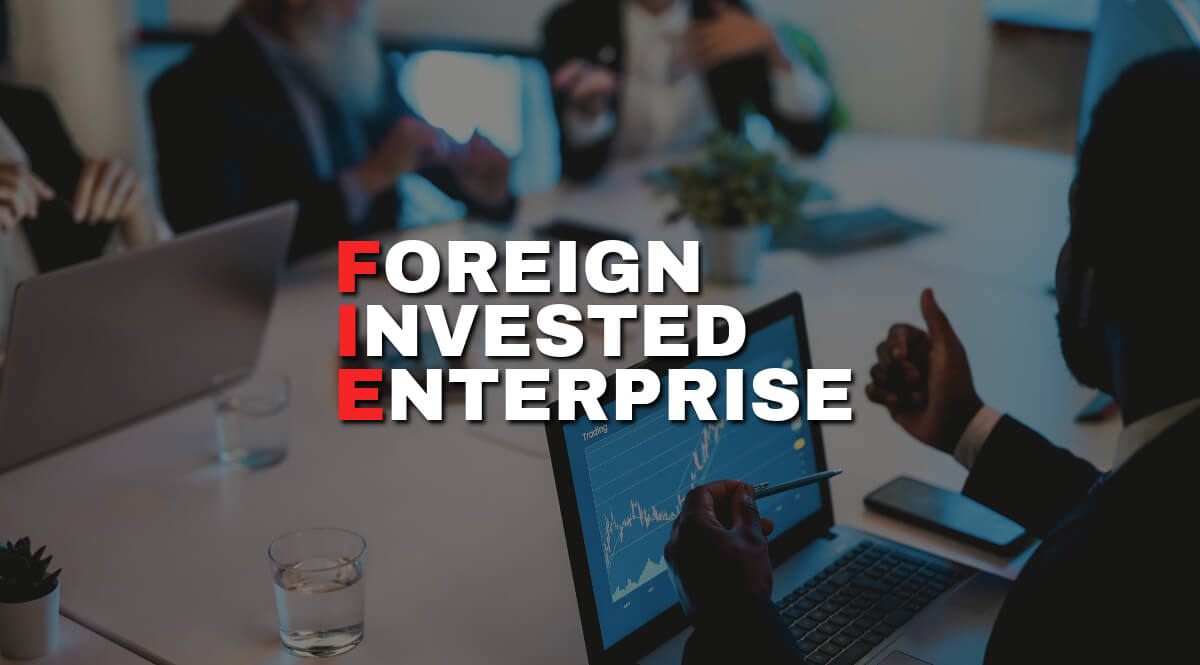
What is Foreign Invested Enterprise (FIE) ?
Have you heard of Foreign Invested Enterprise concept for global businesses? This concept is particularly popular in Asian countries where economies are rapidly evolving.
FIEs have become a vital component of international business strategies. It offers foreign investors a gateway to new markets and opportunities. Understanding what an FIE is and how it operates is crucial for foreign businesses in China.
What Is a Foreign Invested Enterprise (FIE)?
An FIE refers to a company in which foreign investors contribute a significant portion of the capital. FIEs represent a bridge between the investing country and the host country. It enables the exchange of technology, skills, and capital. They play a crucial role in the global business ecosystem, fostering international trade and economic cooperation.
FIEs are subject to a set of rules that do not apply to companies with exclusively national capital. Some of these rules are of general application to all FIEs. Others only apply to particular FIEs due either to their form or their activities.
In any case, the aim of these rules is to guide and regulate the rights of the foreign investor. For instance, the Catalog of Foreign Investments in China is the keystone of this system. It specifies depending on the sector of activity which foreign investments are encouraged, authorized, restricted or prohibited.
FIEs in which foreign capital represents less than 25% of the share capital are not considered as FIEs in their own right. Thus, they generally cannot claim the benefit of certain favorable regimes granted to FIEs (particularly in customs matters).
Foreign Invested Enterprise (FIE) Explained
Operating an FIE involves navigating various legal structures. It comprises adhering to government regulations, and understanding the dynamics of the foreign economy in which it operates.
These enterprises must align their operations with the legal and economic frameworks of the host country. They must ensure compliance with local laws and business practices. FIEs typically engage in market research to understand local businesses and consumer behavior. Thereby it must effectively integrate these factors into the foreign market.
Types of Foreign Invested Enterprises (FIEs)

Several types of FIEs exist, each with its own set of characteristics and operational frameworks:
- Wholly-Owned Foreign Enterprises (WOFEs)
These are entirely owned by foreign investors, offering complete control over business operations This is the most popular FIE model since it enables owners the most control over their business.
- Equity Joint Ventures (EJVs)
In EJVs, foreign and local partners jointly contribute capital and share profits, losses, and management responsibilities.
- Cooperative Joint Ventures CJV
These are similar to EJVs but offer more flexibility in terms of profit distribution and structuring.
- Foreign-Invested Companies Limited by Shares (FICLS)
These companies are joint stock entities, where both foreign and domestic investors hold shares.
- Qualified Domestic Institutional Investor (QDII)
This type involves domestic institutions investing in foreign financial markets.
China’s Foreign Invested Enterprise (FIE) Law Update
China, a leading player in the FIE domain, has recently updated its FIE laws. The new laws aim to simplify the process of setting up an FIE in China. They focus on equal treatment for foreign and domestic businesses, reducing restrictions, and encouraging investment in various sectors.
These changes reflect China’s commitment to opening its market to foreign business, making it an attractive destination for FIEs. Foreign investors now have more opportunities to establish and expand their enterprises in China. Moreover, they can contribute to the country’s economic growth and international business landscape.
What is the responsibility of investors in an FIE?

FIEs are limited liability companies with legal personality. Consequently, FIEs have their own assets, rights and obligations. Also, the liability of investors is limited to the amount of their contributions.
An exception exists for certain CJVs voluntarily constituted without legal personality.
What activities does FIE carry out?
An FIE can only carry out the activities indicated in its corporate purpose. And the Chinese authorities approve the latter during the examination of the constitutive documents of the FIE. This corporate purpose is always mentioned on the FIE Business License.
What are the corporate bodies in an FIE?
A distinction depends on the type of FIE. Depending on the type, you will have various amounts of control over your business.
In a Joint Venture, the board of directors is the supreme corporate body. Indeed, there is no general meeting of shareholders in Foreign Equity Joint Ventures. The board of directors has authorization to make all decisions in the name and on behalf of the Joint Venture. And the chairman of the board of directors represents the Joint Venture.
In a WFOE, we also find the board of directors, but only shareholders can take certain decisions.
The general management of the FIE is entrusted to a “General Manager ” acting under the control of the board. General manager can be replaced by a single Chairman and CEO when the company’s business volume does not justify the establishment of a board of directors.
How are the FIE accounts established?
The financial year of an FIE must correspond to the calendar year. For each financial year, the FIE must draw up annual accounts. These accounts must be audited by an external auditor then submitted to the board of directors for approval.
Conclusion
Understanding how FIEs operate, their types, and the legal structures involved is crucial for foreign investors considering business expansion in China. FIEs offer a strategic pathway for entering new markets. It contributes to the global economy and establishes long-term international partnerships. As global economies continue to integrate, the role of FIEs will become increasingly significant in shaping international trade and investment landscapes.




